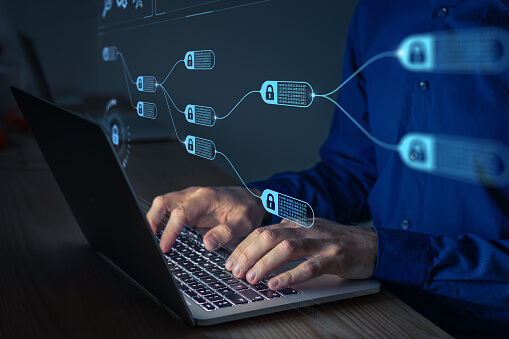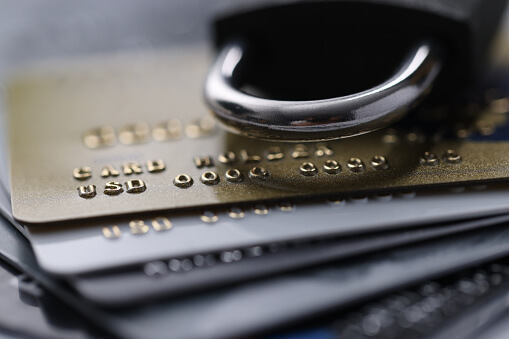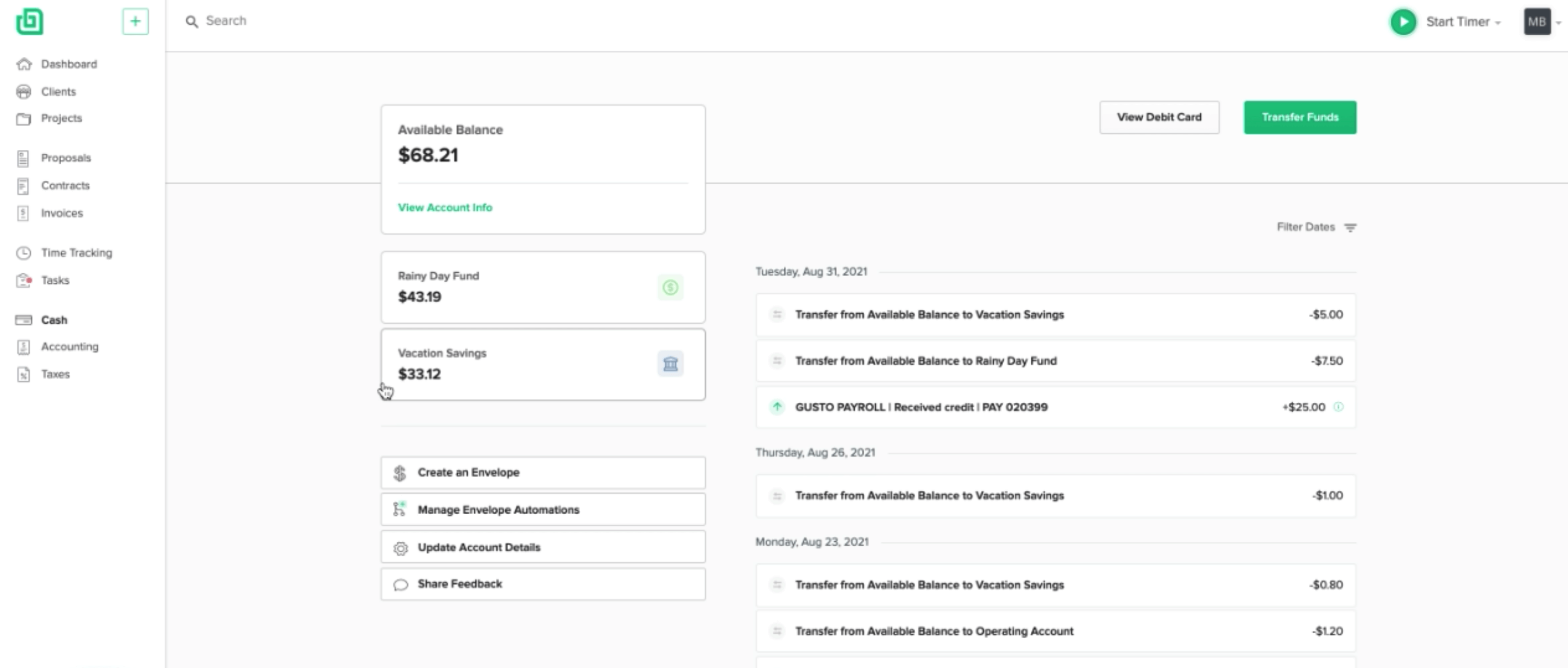Lugging around physical debit cards is becoming a thing of the past. Now, virtual cards are the future. More and more folks are converting to a virtual debit card over a physical debit card for convenience and protection from theft or loss.
In this article, we'll break down exactly what is a virtual debit card, the perks of using an online card, and how to open an online debit card today. Now, without further ado, let's break down what a virtual debit card is.
Note: Virtual payment cards are becoming more and more popular for a reason. If you want to start protecting your money from theft or fraud, and open a hassle-free virtual debit card, try Bonsai's business account. No hidden fees or monthly minimum balance requirements and you'd be able to instantly create sub-accounts online. Open an account today.

What Is A Virtual Debit Card?
A virtual payment card, sometimes referred to as a pseudo card number, is a credit or debit card that can be created and managed through a website or online application.
A virtual debit card is exactly like a physical bank card without the actual tangible card. Just like a traditional debit card, a virtual card contains 16-digit randomly-generated numbers, along with a card verification number and an expiration date.
A virtual card is attached to an underlying debit account online or an existing credit card. When shopping online, you'd simply enter the debit card number and other card details when purchasing goods or services.
Although you cannot use a virtual debit card at places where a chip or card swiping is mandatory, there are a bunch of nice benefits to going virtual instead of using a physical debit card. We'll break down some of those perks below.
Benefits of Virtual Cards
Since a virtual credit or debit card is only available in digital form, there are a ton of unique benefits available to them. Let's review what you can gain by using a virtual card.

Safe From Theft And Fraud
Since digital cards are not a physical cards and they exist only online or on your phone, they are protected by your passcode. You won't have to worry about theft, loss, or cloning, unlike traditional debit cards. A virtual debit card can be disabled right away if you are suspicious of your card details being exposed to a hacker.
Virtual debit cards are electronically encrypted which means they would protect you from business account fraud.
Many virtual payment cards allow you to add two-factor authentication options to boost security. When making online payments, virtual numbers cannot be traced to your bank account or credit card so it is much, much safer than physical cards.
Virtual payment cards are also great to use for recurring payments. After business payments or online purchases are processed, the payment details are sent to a General Ledger, where the transaction is booked. You'd be able to spot duplicate payments or fraudulent charges as they will be flagged. Feel at ease whenever you pay online with a virtual card.

Protect Your Account With Spending Limits
You can also set daily or maximum spending limits on virtual payment cards to avoid being overcharged by a merchant or fraudster.
If you are a business owner, there are a ton of great peaks. For example, you can assign a spending limit to employees' cards and give them a budget. Also, when you are running marketing campaigns and are buying online ads, limits can help protect you from accidentally overspending.
Set maximum spend limits, expiration date for the card, and merchant locks to control spending and automatically freeze cards. These work great for virtual credit cards as well.

How Do You Get A Virtual Debit Card?
There are many places to open virtual cards. A virtual credit card can be given to you from just about any online bank or card issuer from anywhere.
You just need to compare and pick the best one that suits your needs. For example, Chime is a popular online bank account. However, if you want a virtual card for business and not for personal use, Chime does not give business accounts.
So based on your needs, pick the right bank for you. We'll introduce you to a virtual debit card that also offers a physical card--Bonsai's business account.
The Best Virtual Card On The Market: Bonsai's business account
Bonsai's business account is a new online bank account that allows you to create virtual cards instantly. When you open an online business account, you won't be hassled by hidden fees, minimum balance requirements or foreign transaction fees. Bonsai's business account is free to use with a Bonsai account.
Let's go over some other reasons why folks are raving about Bonsai's business account
Note: If you want a virtual card without any hassle, try Bonsai's business account. with Our bank account has no hidden fees or monthly minimum balance requirements. There is no application process so you can get started and have a virtual debit card set up today. Click here to open an account.
.jpeg)
Easy To Make Offline and Online Purchases
Making online and offline payments is simple with Bonsai's business account, You'd be assigned a virtual debit card number you can easily transfer money to and you can begin making purchases online right away.
Bonsai's business account's digital card easily integrates with mobile payments and a digital wallet by scanning it with Apple Pay or Google Pay. In-store purchases can be made on your phone if contactless payments for Apple Pay or Google pay are accepted.
Users can even receive a physical debit card along with their virtual card to account for stores that only accept chips or swipes. Bonsai's business account's physical debit card will allow you to withdraw money from ATMs as well.
Many freelancers prefer this business account because it is easy to separate business expenses from personal ones. This comes in handy when business owners are filing taxes at the end of the year.
Ability To Create Other Sub-Accounts Online
Bonsai's business account's envelopes feature allows you to create sub-accounts at the push of a button. Sub-accounts are useful if you want to save for retirement, taxes, or vacations automatically.
Every time you receive virtual payments, an assigned percentage of the total will automatically be deducted from the payment and dispersed into each sub-account.
You'd be able to create as many sub-accounts as you need to organize your finances.

Flexible Transaction Limits
Bonsai's business account automatically has daily transaction limits. For ATM withdrawals, it’s $300. For card transactions, it’s $2000 and for transfers to external banks, it’s $3,000. You can change or edit these transaction limits based on your needs.
Bonsai's Virtual Debit Cards Are Guaranteed
Since online debit cards offer you virtual numbers, virtual debit cards do not run credit checks in order for you to get approved for a new bank account. You won't have to worry about a ChexSystems report to see if you qualify for a new account. A new business account checking account is guaranteed.
Stop walking around with a physical card. Instead, try Bonsai's business account today by creating an account and see how our virtual debit card can help with convenience as well as organize your business money for taxes.






